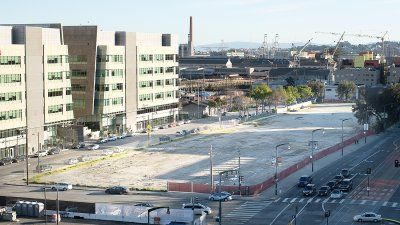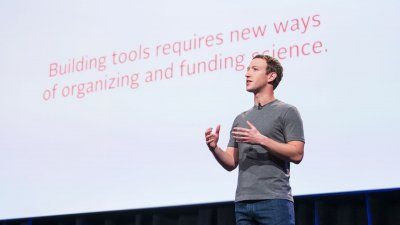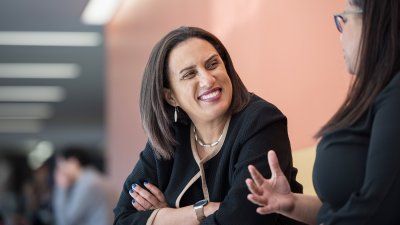Science In Focus: New Mysteries in the Genome of Stentor
The genome of the single-celled organism Stentor, recently sequenced by researchers, may help lead to new insights about how to help our own cells and tissues recover from injury.

University of California San Francisco
Give to UCSFThe genome of the single-celled organism Stentor, recently sequenced by researchers, may help lead to new insights about how to help our own cells and tissues recover from injury.

As part of the UCSF effort to reach zero waste by 2020, Facilities Services has launched a new recycling and waste reduction app.

UCSF continues to sample cold drinking water for lead across its campus and medical center locations in a voluntary testing program that began last summer.

UCSF has joined with UCSF Benioff Children’s Hospital, Children’s Hospital Oakland Research Institute and UC Berkeley to form the Engineering for Children’s Health Initiative.

A $22 million investment via California State Assembly Bill 2664 is supporting innovation and entrepreneurship at UC San Francisco and across the University of California system.

UCSF’s support and advocacy program for survivors of interpersonal violence has been selected as a model practice by the San Francisco Department on the Status of Women.

Scalp cooling can lessen some chemotherapy-induced hair loss – one of the most devastating hallmarks of cancer – in certain breast cancer patients, according to a new multicenter study from UCSF, Weill Cornell Medicine and three other medical centers.

UCSF for the second year straight has raised the most in private contributions of any public U.S. university, with $595.9 million.

SF Mayor, the Department of Public Health and ZSFG gather to celebrate the City’s approval of an ordinance that enables the world-class UCSF research enterprise at ZSFG to continue.

San Francisco Mayor Edwin M. Lee joined physicians, researchers and patients Monday for the signing of an ordinance that will allow UCSF to proceed with construction of a new research and academic building at Zuckerberg San Francisco General Hospital and Trauma Center.

Research uses brain “organoids” — tiny 3D models of human organs that scientists grow in a dish to study disease — to identify root causes of MDS, a rare genetic disorder that causes fatal brain malformations.

UCSF’s Resource Allocation Program, which offers a single online application process for a wide variety of intramural funding opportunities, is now inviting applications for the Spring 2017 cycle.

While President Donald Trump’s Executive Order on immigration faces legal challenges in the courts, UCSF is offering members of the University community support wherever it’s needed, officials said at a town hall meeting on Feb. 3.

UCSF’s new building at Mission Bay to house desktop research, administrative space, and a new Center for Vision Neurosciences with ophthalmology clinics and academic space recently received approval from the UC Regents.

The problem of antibiotic resistance and how research may help keep drugs effective was the topic of this year’s Byers Award Lecture in Basic Science, given by Danica Galonić Fujimori, PhD, on Jan. 31.

Fifteen UCSF faculty members have been named to the first cohort of Chan Zuckerberg Biohub Investigators.

UCSF’s Center for Vulnerable Populations is 10 years old, and over that time it has transformed understanding of how social vulnerabilities relate to health.

UCSF has won eight awards, including three Gold Awards, from the Council for Advancement and Support of Education in an annual regional competition.

A nationwide project that includes two UCSF researchers will use the latest technology, including gene editing, to gain insights into human biology that could one day lead to treatments for complex genetic diseases.

Women whose breasts are composed largely of glandular tissue, rather than fat, have an amplified risk of breast cancer, which exceeds the impact of other widely known risks on a population level.

Poor performance on a simple odor identification test was associated with a significantly increased risk of developing dementia years later.

A new study identified genetic predictors of normal prostate-specific antigen (PSA) levels in healthy men, which could be used to improve the accuracy of PSA-based prostate cancer screening tests.

The San Francisco Board of Supervisors have unanimously approved a lease agreement that will allow UCSF to move forward with constructing a new research and academic building at Zuckerberg San Francisco General Hospital and Trauma Center.
